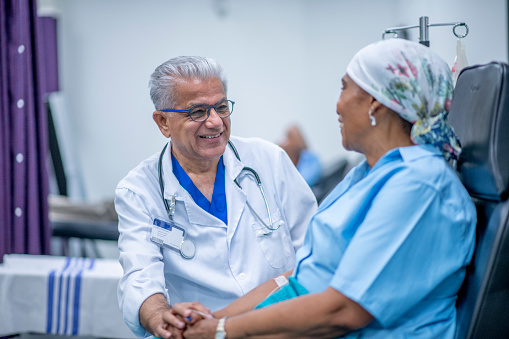Concerned about cancer prevention? Take responsibility by making changes such as eating a healthy diet and getting regular checkups.
You’ll likely hear conflicting reports about cancer prevention. Sometimes, advice that goes against another recommended in a study on cancer prevention can be given.
In many cases, information known about cancer prevention is still developing. However, it is an accepted opinion that the chances of developing cancer are affected by the lifestyle choices one makes.
Therefore, in the case of cancer prevention, take advantage of the fact that simple lifestyle changes can make a positive difference. Consider the following cancer prevention tips:
- Avoid using tobacco
Using any type of tobacco puts you on a collision course with cancer. Smoking has been linked to various types of cancer – including cancer of the lung, mouth, throat, larynx, pancreas, bladder, cervix and kidneys. Chewing tobacco has been linked to cancer of the oral cavity and pancreas. Even if you don’t use tobacco, exposure to second-hand smoke may increase your risk of lung cancer.
Avoiding tobacco — or deciding to stop using it — is an important part of preventing cancer. If you need help quitting smoking, ask your doctor about smoking cessation products and other strategies to quit smoking.
- A diet that is good for your health
Although healthy choices when purchasing groceries and when eating cannot guarantee cancer prevention, they may reduce that risk. The following guidelines should be observed:
Eat a large number of fruits and vegetables. Base your diet on fruits, vegetables, and other plant-based foods — such as whole grains and legumes.
Maintain a healthy weight. Make your diet lighter and less fat by choosing foods with fewer calories, including refined sugars and fats from animal sources.
If you want to drink alcohol, drink in moderation. The risk of different types of cancer — including breast, colon, lung, kidney, and liver cancer — increases with the amount of alcohol you drink and the length of time you’ve been drinking regularly.
Cut back on processed meat. A report from the International Agency for Research on Cancer, the cancer agency of the World Health Organization, concluded that eating large amounts of processed meat may slightly increase the risk of certain types of cancer.
In addition, the incidence of breast cancer may be reduced in women who follow the Mediterranean diet and supplement it with pure extra virgin olive oil and a mixture of nuts. The Mediterranean Diet often focuses on plant foods; Such as fruits, vegetables, whole grains, legumes, and nuts. People who follow the Mediterranean diet prefer eating healthy fats, such as olive oil instead of butter, and fish instead of red meat.
- Maintain a healthy body weight and exercise regularly.
Maintaining a healthy body weight may reduce your risk of many types of cancer, including breast, prostate, lung, colon and kidney cancer.
The same goes for physical activities as well. In addition to helping you control weight, they alone may reduce the risk of breast and colon cancer.
Adults who do any amount of physical activity get some health benefits. But to enjoy the essential health benefits, aim for at least 150 minutes of moderate aerobic activity per week or 75 minutes of vigorous aerobic activity per week. You can also combine moderate and hard exercises. Set a general goal of including at least 30 minutes of physical activity in your daily routine, and it is best to increase this amount as much as possible.
- Protect yourself from the sun
Skin cancer is one of the most common types of cancer, and one of the most preventable. Try the following tips:
Avoid the midday sun. Stay out of the sun between 10 a.m. and 4 p.m., when the sun’s rays are strongest.
stay in the shade. When outside, stay in the shade as much as possible. Sunglasses and wide-brimmed hats also help.
Cover exposed areas. Wear loose-fitting, tightly woven clothing that covers as much skin as possible. Avoid bright or dark colors that reflect more ultraviolet radiation than light-colored or white cotton.
Don’t forget to use sunscreen. Use a broad-spectrum sunscreen with an SPF of at least 30, even on cloudy days. Apply sunscreen generously, and reapply every two hours, or more often if you are swimming or sweating.
Avoid tanning beds and sunlamps. It is as harmful as natural sunlight.
- You should receive a vaccine
Cancer prevention includes protection against certain viral infections. Talk to your doctor about being vaccinated against:
Hepatitis B. Hepatitis B can increase the risk of developing liver cancer. The hepatitis B vaccine is recommended for adults who are at high risks — such as adults who engage in multiple sexual relations, people with sexually transmitted infections, those who inject drugs, men who have intercourse with other men, and health care and public safety workers who may They are exposed to contaminated blood or body fluids.
Human papillomavirus (HPV). It is a sexually transmitted virus that can lead to cervical and other cancers of the reproductive organs, as well as squamous cell carcinomas of the head and neck. The HPV vaccine is recommended for girls and boys 11 and 12 years old.
The U.S. Food and Drug Administration recently approved the use of the Gardasil 9 vaccine for males and females ages 9 to 45.
- Avoid risky behaviors
Avoiding risky behaviors that can lead to infection and which, in turn, may increase the risk of cancer, is another effective cancer prevention method. for example:
Take care of safety during sex. Reduce the number of sexual partners, and use a condom when having sex. The more sexual partners you have, the greater your risk of contracting sexually transmitted diseases such as HIV or HPV. People with HIV or AIDS are at increased risk of anal, liver, and lung cancer. HPV is most often associated with cervical cancer, but it may also increase the risk of cancer of the anus, penis, throat, vulva, and vagina.
Do not share needles. Sharing needles with people who take intravenous medications can lead to HIV infection, as well as hepatitis B and hepatitis C, which can increase the risk of liver cancer. If you’re concerned about drug misuse or addiction, seek professional help.
- Get medical care
Self-exams and regular exams to check for various types of cancer, such as skin, colon, neck and breast cancer, can increase your chances of finding cancer early, when treatment success is most likely. Ask your doctor about the best cancer screening schedule for you.
[mashshare]



[…] Cancer prevention: 7 tips to reduce the risk of developing the disease […]
[…] Cancer prevention: 7 tips to reduce the risk of developing the disease […]
[…] Cancer prevention: 7 tips to reduce the risk of developing the disease […]
[…] Cancer prevention: 7 tips to reduce the risk of developing the disease […]
[…] Cancer prevention: 7 tips to reduce the risk of developing the disease […]
[…] Cancer prevention: 7 tips to reduce the risk of developing the disease […]
Wonderful website you have here but I was curious if you knew of any community forums that cover the same topics discussed here? I’d really love to be a part of group where I can get comments from other experienced people that share the same interest. If you have any recommendations, please let me know. Thanks!
[…] Cancer prevention: 7 tips to reduce the risk of developing the disease […]